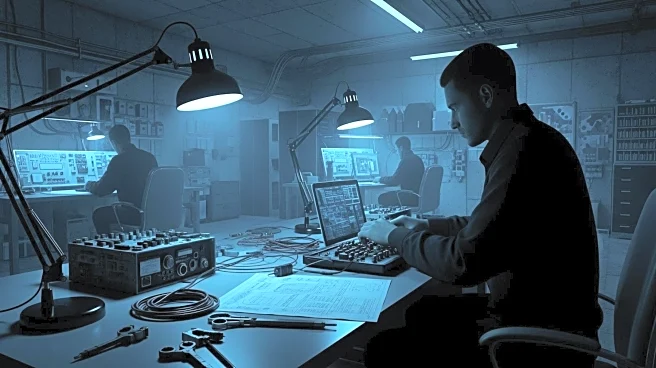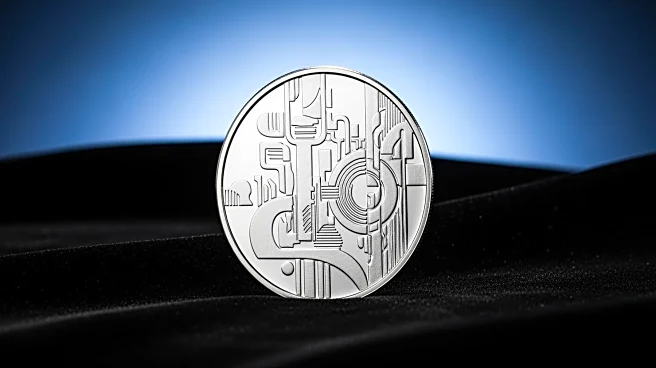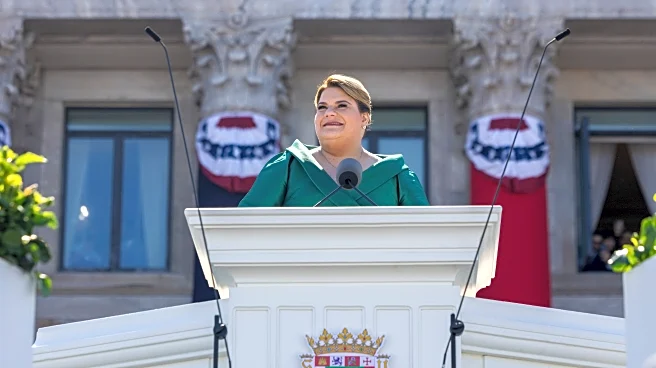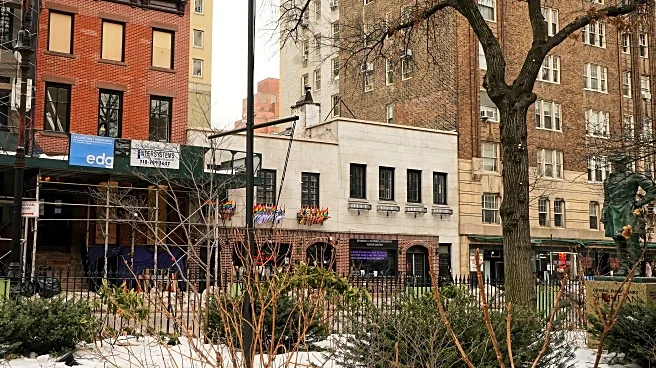What's Happening?
Hezbollah is reportedly undergoing a secretive restructuring process following significant losses to Israel, including the assassination of its leader Hassan Nasrallah in September 2024. According to a report by
Le Figaro, the group is rebuilding its military capabilities with the aid of Iranian operatives, despite agreeing to disarm in southern Lebanon. The Israeli Defense Forces (IDF) continue to conduct near-daily strikes in Lebanon, targeting Hezbollah operatives attempting to restore terror infrastructure. The group has retained its arms in other strongholds and is implementing a new, secret military structure led by a younger leadership. This restructuring comes amid internal criticism of Nasrallah's cautious approach during the conflict with Israel.
Why It's Important?
The rebuilding efforts of Hezbollah have significant implications for regional stability and security. The group's ability to retain influence and military capabilities poses a potential threat to Israel and could lead to renewed hostilities. The ongoing Israeli strikes highlight the persistent tensions and the fragile ceasefire in the region. Hezbollah's internal restructuring and continued support from Iran suggest that the group remains a formidable force in Lebanese politics and society. The situation also affects Lebanon's reconstruction efforts, which are contingent on disarmament and external funding, primarily from Gulf states. The group's financial struggles, exacerbated by the collapse of the Assad regime in Syria, further complicate the geopolitical landscape.
What's Next?
Hezbollah's future actions will likely depend on the broader geopolitical dynamics in the Middle East, including Iran's regional ambitions and Israel's security policies. The group's covert activities and restructuring efforts could lead to increased tensions with Israel, especially if Iranian interests are threatened. Lebanon's political landscape may also shift as the government navigates the challenges of disarmament and reconstruction. The international community, particularly Gulf states, may play a crucial role in influencing Lebanon's path forward by conditioning financial aid on Hezbollah's disarmament.
Beyond the Headlines
Hezbollah's restructuring and continued influence in Lebanon raise questions about the balance of power in the region. The group's ability to adapt and maintain support despite military setbacks underscores its resilience and the complexity of Middle Eastern politics. The situation also highlights the challenges of achieving lasting peace and stability in a region marked by historical conflicts and external interventions. The ethical and legal dimensions of Hezbollah's actions, including its ties to Iran and involvement in regional conflicts, remain contentious issues in international diplomacy.











